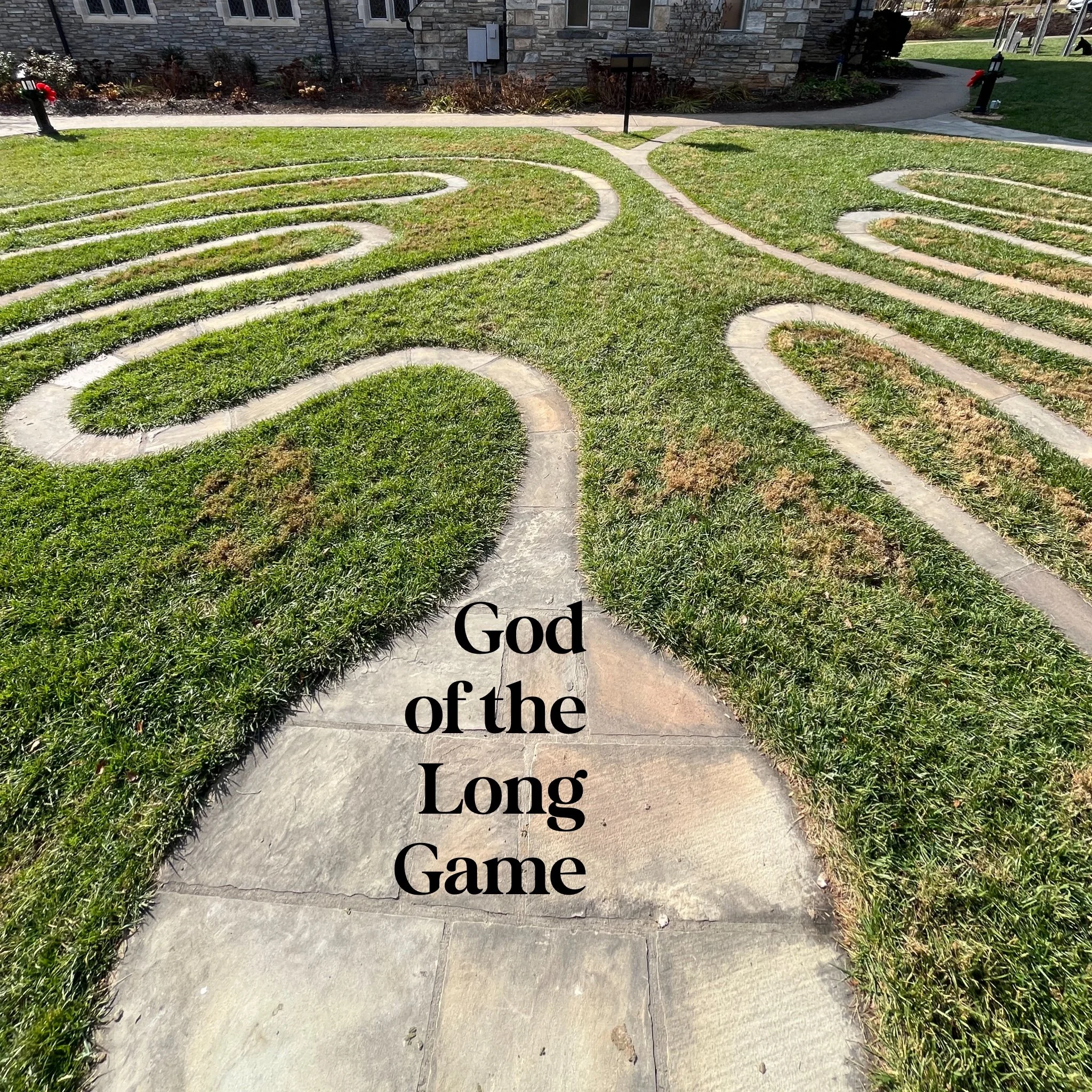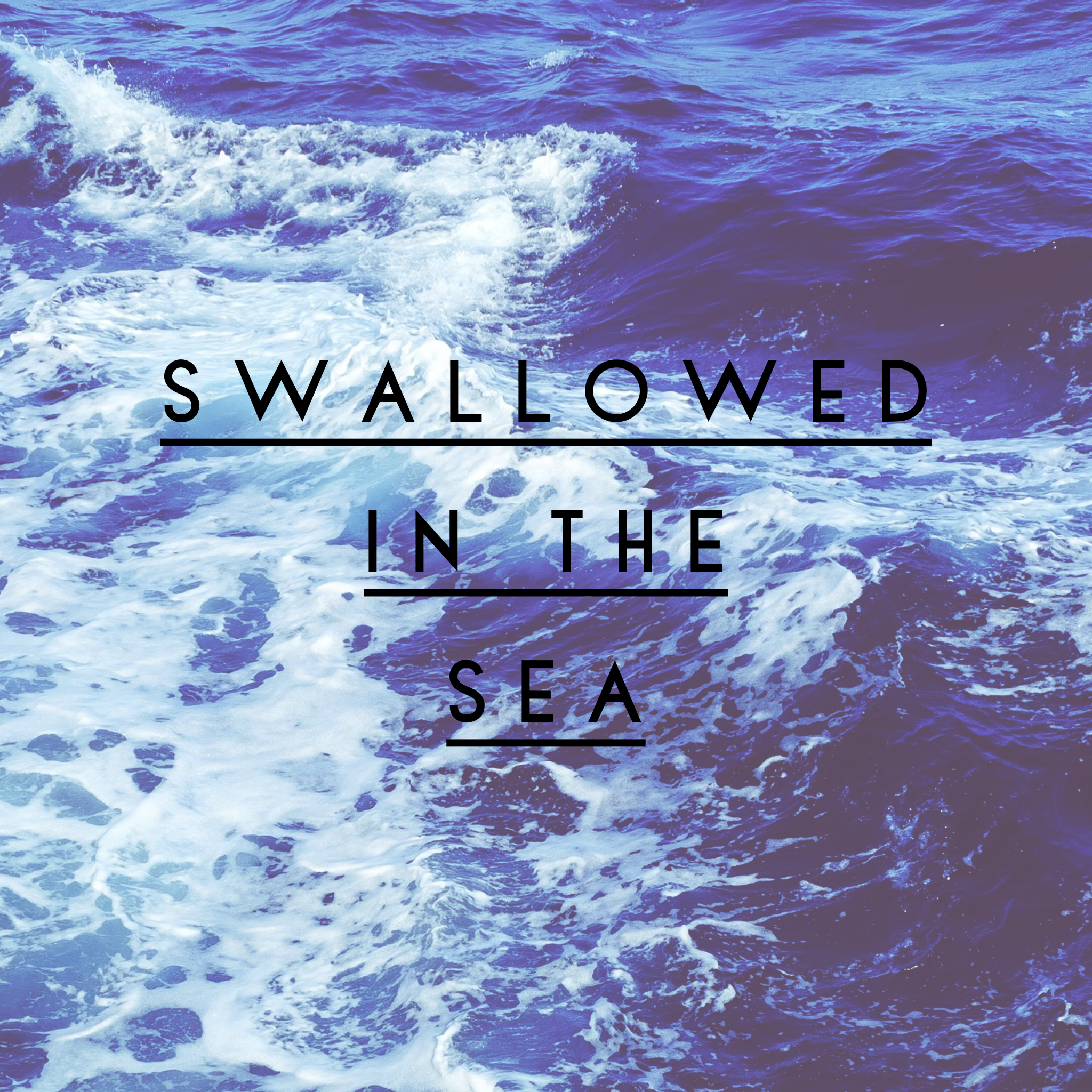Swallowed in the Sea (Jonah 1-4)
Let me be honest. I picked Jonah purely because I have never heard anyone preach on it before. I know that people have preached on it before. I shared that I was preaching about this Bible story on Facebook and I immediately had two friends from college say, “Oh, I just preached about that!” But I can’t recall anyone in my three and a half decades of going to church ever preaching about this story. And it is such a wonderful, ridiculous, crazy story. In four short chapters, you get daring would-be escapes, storms at sea, a giant man-eating fish, and cities spared destruction. I’m surprised we do not hear this story every year as a palate cleanser.
Perhaps the reason that we don’t hear people preaching about Jonah that often is that most of us see it as a children’s story. Virtually any tale involving animals is a de facto children’s story which gets us into trouble quickly as anyone who has read Noah’s Ark to an inquisitive child can attest.
In fact, my most vivid memory of the Jonah story was a children’s musical that my church did. I got to play Jonah. My job? To run in the sanctuary; the same sanctuary I was forbidden to run in through my entire childhood. Every time the title song of “Go, Go Jonah” was sang I got to sprint up and down the aisles. I got to hide in a giant papier-mâché whale that fired a confetti cannon when I got spit back on dry land. It was one of my top five experiences in a church sanctuary ever.
But we usually don’t give children’s stories much thought and that’s truly a shame because those tales are often far more complicated than they seem. Often we’ll completely miss the point because we’ve manufactured a neat and tidy moral. The truth about Jonah—and I encourage you to read it today or sometime this week; it is an incredibly quick read—is that it is a story that is darker, a little more twisted, but ultimately more hopeful than we normally believe it to be.
The beginning of the tale is quite familiar. God tells Jonah, “Go at once to Nineveh, that great city, and cry out against it; for their wickedness has come up before me.” And what does Jonah do? He runs. He goes down to Joppa—keep that in mind because the imagery of descending pops up continually in the first two chapters of this story—and buys a ticket for a ship bound for Tarshish in an effort to get as far away from Nineveh as he can.
At this point, we don’t know why Jonah is running. Most of us would naturally assume that he doesn’t want to go to a mighty city to tell them that their wickedness warrants doom and destruction. Prophets throughout the Hebrew Bible faced prison, torture, and potential death for bringing those kind of messages. So while Jonah is disobedient, at this point in the tale, we kind of understand where he’s coming from.
Jonah learns that you can run on for a long time, but sooner or later God is going to cut you down. He goes down—again down—into the ship and God sends a terrible tempest upon the sea. Throughout the Hebrew Bible, the sea represents chaos and un-creation. In Genesis 1, the earth is a swirling watery void before God speaks. The Great Flood story shows the world becoming undone. The sea means we are going to witness some chaos.
This storm is so violent that it threatens to break the ship apart. The sailors are tossing everything that they can find overboard in hopes that they will survive the thrashing waves. Jonah sleeps through the entire thing until one of the sailors rushes down to wake him up and begs him to call on his god because the gods they’re calling on aren’t helping.
Eventually they cast lots, which was kind of an ancient rolling of the dice that was believed to reveal the will of God. The lots fell to Jonah. The sailors begin asking questions. Why is this happening? Who are you? What do you do? Jonah tells them “I am a Hebrew. I worship the Lord, the God of heaven, who made the sea and the dry land.”
This freaks the sailors out. What is wrong with you? Why are you running from God like this? Jonah tells the sailors that they must toss him into the sea if they want the storm to stop. They are hesitant because they fear Jonah will drown and do not want to anger God any further. But eventually, when they can’t row back to land, they throw Jonah in the chaotic waters, praying that God will forgive them for what they are about to do. And the sea calms.
So Jonah is in a bit of a spot. He is lost in the middle of a vast sea. But rescue is at hand. God sends a great fish to swallow Jonah. Now I know that we often refer to this story as Jonah and the whale, but you will inevitably come across someone who says, “Technically, the Bible says it was a big fish.” I know this because I have been that person my entire life. But you know what? We’re not going to get hung up on that. Whale. Ancient ocean monster. Whether you believe this actually happened or whether you believe this is a satirical story designed to teach an important truth, the point is Jonah is now inside the belly of a sea beast.
And that has always been the point of this story; at least as I was taught it as a child. Boys and girls, you need to do what God says or God will hunt you down with the ocean and a giant whale. Now granted this was hyperbole. Most of our Sunday school teachers were not really suggesting that God was going to send marine life to devour us. But they did let us know it was an option on the table. And when you are a seven year old who only desires to do what’s right, that is terrifying.
Speaking of terrifying, Jonah is inside a fish and he has this moment of reckoning. He has fallen far. He disobeyed God. He went down to Joppa. He went down into the hull of the ship. He was cast down into the sea. He is now in this fish that has gone deeper into the water’s depths. Jonah begins to pray this beautiful prayer that belongs alongside the psalms:
“I called to the Lord out of my distress,
and he answered me;
out of the belly of Sheol I cried,
and you heard my voice.
You cast me into the deep,
into the heart of the seas,
and the flood surrounded me;
all your waves and your billows
passed over me.
Then I said, ‘I am driven away
from your sight;
how shall I look again
upon your holy temple?’
The waters closed in over me;
the deep surround me;
weeds were wrapped around my head
at the roots of the mountains
I went down to the land
whose bars closed upon me forever;
yet you brought up my life from the Pit,
O Lord my God.”
Jonah sees that his life is going down, down, down. He knows he’s the one at fault. He knows he is the one who has messed up. And he is crying out to the only one who can save him. He has been swallowed in the sea. He is near death. He needs God to resurrect him. The simple pat moral that we learn as children still has life in it. Even though God does not necessarily sic creation on us when we disobey, we can find ourselves drowning in our own misdeeds. If we let ourselves be ruled by selfishness, we too may be swallowed in the sea and need to have these moments of reckoning.
The good news of this version of the Jonah story is that God does hear. God does lift Jonah out of the Pit. God is full of grace and gives Jonah a second chance. The whale spits Jonah out on dry land and Jonah trudges off to Nineveh. But we eventually learn that Jonah is not the only one to whom God is giving a second chance and that is where the tension of this story plays out.
The children’s story version of Jonah kind of ends here. The hero’s arc has been completed. There was the fall and there was redemption. Jonah goes and does what he was supposed to do all along. The rest of the story is just footnotes.
But something strange happens. The wicked people of Nineveh—the villains who have been looming over this story—take Jonah seriously. They believe him. They all begin to fast and ask God for forgiveness. Every man, woman, and child begin to wear sackcloth. When Jonah’s message finally reaches the king—the man in charge of this hive of scum and villainy—he decrees that everyone, even the animals wear sackcloth and fast. “All shall turn from their evil ways and from the violence that is in their hands. Who knows? God may relent and change his mind; he may turn from his fierce anger, so that we do not perish.” The king doesn’t know whether this will work, but like Jonah in the belly of the whale, he has this moment of reckoning.
Nineveh repents and God does indeed relent. Yay, it’s a happy ending! Except Jonah is furious. This is the part that they glossed over when I was a kid, this is what makes the story more complicated, and this is why it’s always a good idea for you to read the Bible for yourself. The eleventh hour twist we discover is why Jonah really ran away at the beginning of the story and it makes us question everything that came before it.
Jonah says to God: “O Lord! Is not this what I said while I was still in my own country? That is why I fled to Tarshish at the beginning; for I knew that you are a gracious God and merciful, slow to anger, and abounding in steadfast love, and ready to relent from punishing.”
Jonah did not run because he was afraid the people of Nineveh would do something awful to him. He ran because he was afraid that God would not do something awful to the people of Nineveh. He was worried they would repent. He was worried that God would forgive. He wanted to see them punished. He didn’t want to see love ultimately win. It brings a level of religious hypocrisy to his past actions including his eloquent prayer in the belly of the whale.
Jonah goes outside the city to see what is going to happen. And God decides to extend grace to this erstwhile prophet in an effort to get Jonah to understand. As the middle eastern sun beats down, God causes a plant to grow that gives shade and provides Jonah relief from the punishing heat. Jonah is quite happy with his new botanical friend and it seems to cause some of his anger to subside.
The next morning, God sends a worm—because this is a story where God sends creatures great and small to do the dirty work—to eat the plant so that when the sun rises and the hot eastern wind blows through, Jonah is exposed to the elements again. Jonah is once again irate and demands that God take his life.
“But God said to Jonah, ‘Is it right for you to be angry about the bush?’ And he said, ‘Yes, angry enough to die.’ Then the Lord said, ‘You are concerned about the bush, for which you did not labor and which you did not grow; it came into being in a night and perished in a night. And should I not be concerned about Nineveh, that great city, in which there are more than and hundred and twenty thousand persons who do not know their right hand from their left, and also many animals?’”
And that question is how the story ends. We don’t know what Jonah’s response is because the question ultimately goes out to the reader, to you and to me. We live in a world in which many very clearly see the world in terms of us and them. We live in a world where people are so angry that they could die.
I’ve been thinking about this sermon for a few weeks and have been ready to lay into Jonah for being such a massive jerk. He really is the villain of this story. But then I felt myself feeling just like he did this week. When I found out about the mass shooting that happened in Thousand Oaks, CA on Wednesday—not even two weeks after the shooting at Tree of Life Synagogue in Pittsburgh—it completely derailed me. In that moment I completely and totally understood Jonah. I wanted to gather my wife and my sons and I wanted to run. I was angry. And I wanted to see God punish people who continually bury their head in the sand over this issue. People who insist we can’t do anything.
I’m not saying that I have an answer, but I’m sick and tired of nothing changing. I was 16 and in high school when the shooting in Columbine happened. It felt like the end of the world for that many people to die. Now it feels like clockwork. I’m tired of the violence and of dead daughters and sons, mothers and fathers. I understood Jonah all too well and I could barely write a word of this sermon.
And I had to have a reckoning of my own. Anger is a natural response to all of this violence. It is a healthy response. If you are not angered by people being murdered in cold blood then please do some deep soul searching. But if I understand scripture correctly then that anger has to be transformed into something life-giving. It has to work towards goodness. It has to work toward making the world better.
Jonah had anger; probably justified anger. The people of Nineveh were violent. They harmed innocent people. But Jonah thought that his anger should have the final word. He thought that there shouldn’t be redemption. He thought that the people of Nineveh were undeserving of God’s love. And he was blind to the way that his “us versus them” mentality led to his own downfall and prevented him from rejoicing when a beautiful story of redemption took place. He forgot that God’s love was not something on which he had a monopoly.
There was a Baptist minister by the name of Will Campbell who made his home here in Nashville for a good portion of his life. He spent much of his time working with the civil rights movement. A white man, Campbell was fired from his post as religious coordinator at Ole Miss for hanging out with an African-American minister. He was there with Martin Luther King, Jr. at the founding of the Southern Christian Leadership Conference. He helped escort nine students into a Little Rock school as angry mobs tried to keep them out. But he was also known for trying to minister to members of the Ku Klux Klan and wanting to help those blinded by racial hatred to see the light.
One day, his friend P.D. East—an agnostic who didn’t have much time for religion but respected Campbell—asked the minister to summarize the message of Christianity in ten words or less. “Let me have it. Ten words.” Campbell thought and then responded. And I want to pause because I have gone back and forth all week on whether I would quote Campbell exactly. I think language is important and I hesitate to say this word. If this does offend you, please find me afterwards so I may apologize to you personally.
But I feel like I ought to include all of Campbell’s definition of the Christian faith: “We’re all bastards but God loves us anyway.” Some time later, East put this definition to the test. A friend of Campbell’s—a student from Harvard Divinity who came to help with the civil rights movement—was gunned down by a bigoted Alabama sheriff.
“Let’s see if your definition of the Faith can stand the test,” East demanded. Did God love the young man who left his familiar confines of home to help with the civil rights movement? Absolutely. What about the redneck sheriff who murdered him in cold blood? Did God love him? Yes, God loved him too. Then came the final question: “Which do you think God loves the most?”
In his memoir Brother to a Dragonfly, Campbell wrote:
I agreed that the notion that a man could go to a store where a group of unarmed human beings are drinking soda pop and eating moon pies, fire a shotgun blast at one of them, tearing his lungs and heart and bowels from his body, turn on another and send lead pellets ripping through his flesh and bones, and that God would set him free is almost more than I could stand. But unless that is precisely the case then there is no Gospel, there is no Good News. Unless that is the truth we have only bad news, we are back with law alone.
God loves all of us. There is no them. There is only us. Yes, God wants us to repent just as God wanted Jonah to repent in the whale. Just as God wanted Nineveh to repent of its wicked ways. Just as God wants us to repent of all the hatred and violence that exists in this country. God wants to see that happen because God wants restoration and wholeness and reconciliation, because God loves us all.
If we do not strive, with God’s grace, to live that out then we are running from God as fast as we can; even if we’re standing still. It’s funny that even though Jonah was sitting outside of Nineveh, he was still running from God because of what was in his heart. It’s like part of him never really came back from the belly of the whale. There was a part of him that didn’t truly come back to life because he didn’t want to see grace do its thing.
So this so-called children’s story leaves us with an enormous challenge. If we do not have love, mercy, and forgiveness for others then we are adrift in the swirling chaos of the waves. If we do not recognize that sometimes we need grace just as much as our so-called enemies then we might as well be in the belly of a whale. If we do not realize in the depths of our soul that God’s love goes beyond people like us then we are not truly living life as God intends. If we don’t live our lives telling others about God’s love and pursuing reconciliation, then we might as well be swallowed in the sea.
As I said when I initially wrote about Will Campbell a month ago, a tip of the hat is due to Philip Yancey and this blog post, “Apostle to the Rednecks,” that helped jogged my memory when I googled Campbell’s famous phrase.









